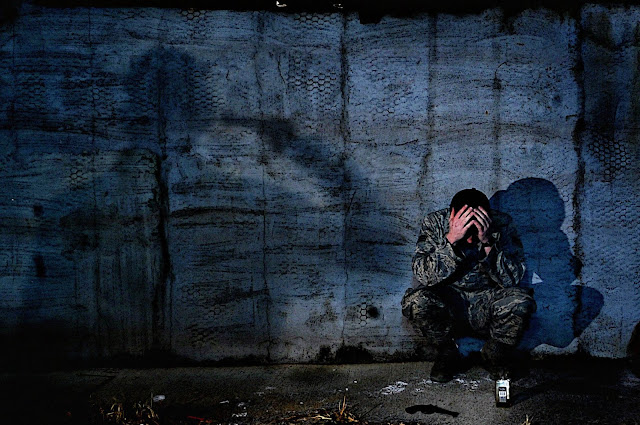What is mental health stigma?
Mental illness has a stigma attached to it. The stigma works in several different ways.It causes people to discriminate against those who have a mental illness, as well as causing people not to seek diagnosis and treatment, not just because of prejudices from others, but from prejudices and shame within themselves. This stigma affects treatment, health insurance, diagnosis, just about all aspects of our lives as a society and as individuals. One study has shown that mental health professionals showed more prejudices against the mentally ill than the general public! Mental health professionals were more accepting of rights being taken from mentally ill people as well as generally seeing mentally people in a negative light! ( Nordt, C., Rössler, W., & Lauber, C. (2006)).
 |
| Look carefully at the picture above. This was done for military mental health awareness. Mental health stigma causes despair, isolation, many times death. |
Let's define these terms and then we'll look at the effects and possible ways to stop the stigma:
From MayoClinic.com: mental illness
Mental illness refers to a wide range of mental health conditions — disorders that affect your mood, thinking and behavior. Examples of mental illness include depression, anxiety disorders, schizophrenia, eating disorders and addictive behaviors. Many people have mental health concerns from time to time.
From Dictionary.com: stigma
1. a mark of disgrace associated with a particular circumstance, quality, or person.
"the stigma of having gone to prison will always be with me"
| synonyms: | shame, disgrace, dishonor, ignominy, opprobrium, humiliation, (bad) reputation
"the stigma of bankruptcy"
|